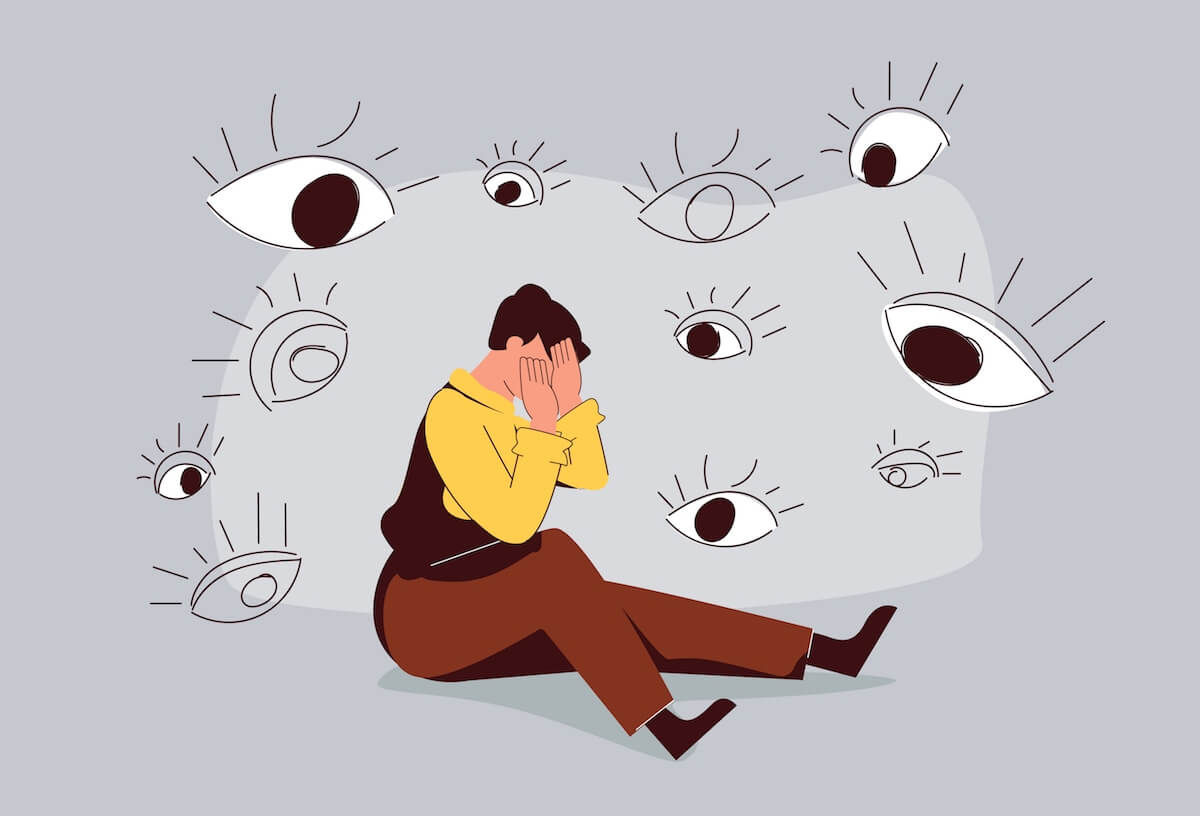How to Overcome Your Phobias, According to an Expert
Having a fear that develops into a phobia is no joke, and unfortunately, overcoming phobias isn't easy.
After all, just being scared of something doesn't mean you have a phobia. Phobias affect you over a period of time and can interfere with your day-to-day life. We were wondering how, exactly, one gets over the things that frighten them most, so we turned to Jennifer Kelman, therapist and mental health expert for JustAnswer, for answers. She shared her insights into phobias, and how to treat them, and here's what she had to say:
What Exactly Are Phobias?
Jennifer Kelman: A phobia is an irrational fear toward a situation or object that is long-lasting. The person with the phobia will go to great lengths to avoid the situation or object.

(via Shutterstock)
How Are Phobias Treated?
JK: It can be hard for a person to go for treatment for a phobia because there is a lot of internal shame that the person carries with them in regard to having the fear, but if they allow themselves to feel vulnerable and go for help, treatment can help. The treatment modalities used to treat phobias are exposure therapy and cognitive behavioral therapy and they are often used together. Exposure therapy involves gradually exposing the person to the thing that causes the fear while working on a cognitive behavioral level to get through it. Change the cognition and change the feelings. As the person is exposed to the fear they can begin to work through the feelings that come up and begin to gain a sense of mastery over it. These therapies take time but can be quite effective if the person is able to stick with it. Sometimes, people leave therapy because it can be overwhelming to do the tough work.
Also read about: Do You Have Any of These Common Phobias?
Why Exposure Therapy Is Better Than Avoidance
JK: Treatment is always better than avoidance because life throws things at us and avoidance simply isn't always possible. Then, if exposed, one may feel overwhelmed, which could lead to panic attacks and crippling anxiety. With hard therapeutic work, it is possible to reduce irrational fears.

(via Shutterstock)
Mindfulness and Phobias
JR: Mindfulness is great for all people, whether dealing with phobias or not. Mindfulness brings the focus back to the present moment and reconnects you with your body to keep you grounded. As our minds wander, different thoughts leading to harmful emotions or fears may take over. Become mindful and centered by breathing through tough moments that may cause fear and panic.
Also read about: Why Being More Mindful Should Be at the Top of Your 2022 Resolutions
What Else You Should Know
JR: Help is available, and one can make great strides so that they aren't crippled by a phobia thereby causing them to miss out on all aspects of life.

(via Shutterstock)
Eager to learn more about yourself and your mind? Click HERE for our interview with JustAnswer's dream expert on what dreams about losing teeth really mean.